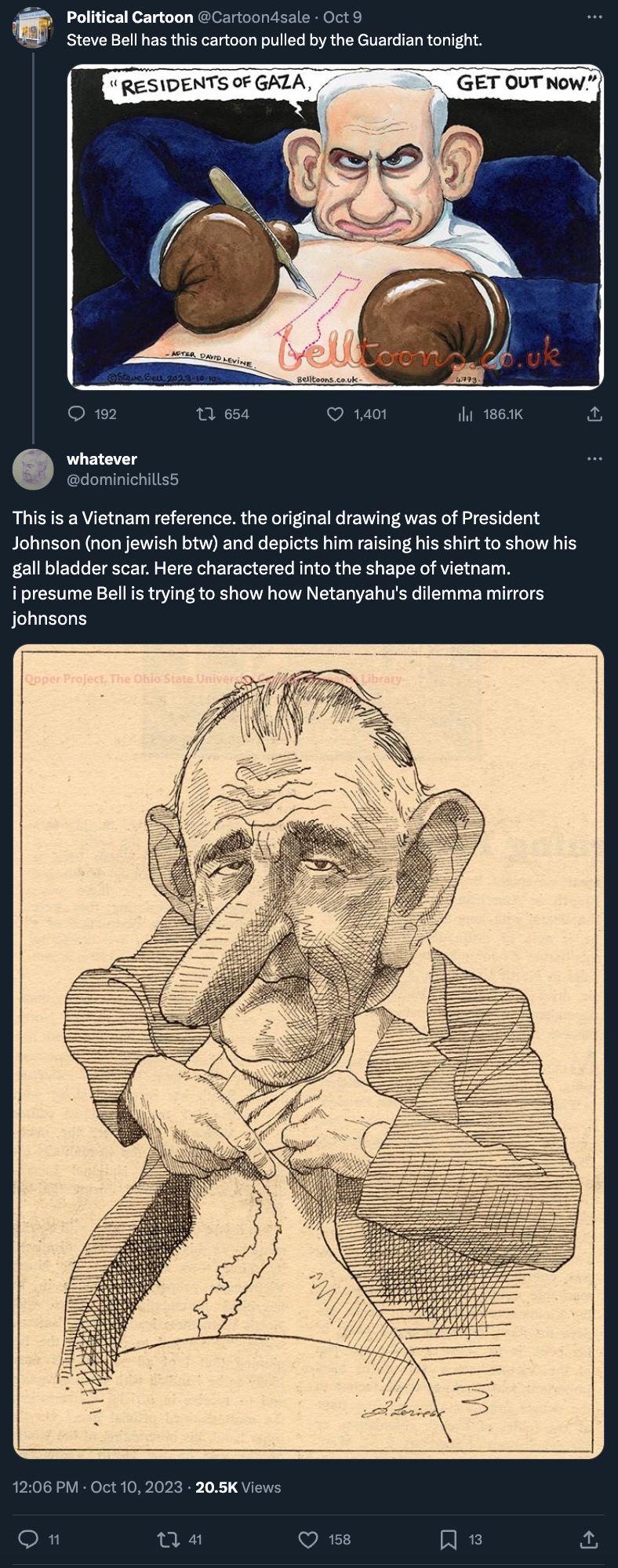Political cartoonist Steve Bell has found himself at odds with his employers at The Guardian. The longstanding artist has been ousted from the publication due to accusations of anti-Semitism, the focus of this contention being a cartoon featuring Israeli Prime Minister Benjamin Netanyahu.
The cartoon in question features Netanyahu gripping a scalpel, poised over his protruded stomach to carve an outline of Gaza. The caption “Residents of Gaza, get out now,” didn’t sit well with critics, who interpret it as a pointed allusion to Shylock, the Jewish character from Shakespearean literature infamous for his demand for a “pound of flesh.”
Undeterred by these allegations, Bell defends his work and the motive behind it, refuting insinuations of anti-Semitic undertones. The cartoon, prefaced with “After David Levine,” is, he suggests, a nod to this iconic artist’s rendition of US President Lyndon B. Johnson, bearing a scar shaped like Vietnam, a concurrent visual commentary on prevalent war themes of that era.

In a tweet on October 9, Bell disclosed that his artwork had met with resistance once again. Upon submitting it, he furthered that his subsequent interaction with the publication had the puzzling exchange related to a “pound of flesh.”
A recent spike in anti-semitic statements and acts following the October 7th terror attack by Hamas on Israel has caused more scrutiny of speech and a Guardian spokesperson explicitly declared that they had elected not to renew Bell’s contract.
Since the Charlie Hebdo terror attack in 2015, news outlets around the world made a recommitment to free speech when it comes to cartoons.
The tragic event occurred on January 7, 2015, when gunmen from an Islamic terror group stormed the offices of the French satirical weekly newspaper in Paris, killing 12 people and injuring 11 others. The massacre became a global touchstone for discussions of free speech, the power of satire, and the tension between secularism and religious sensitivities. The incident was a stark reminder of the threats faced by media personnel and artists around the world when they engage in speech that could be offensive or blasphemous.













